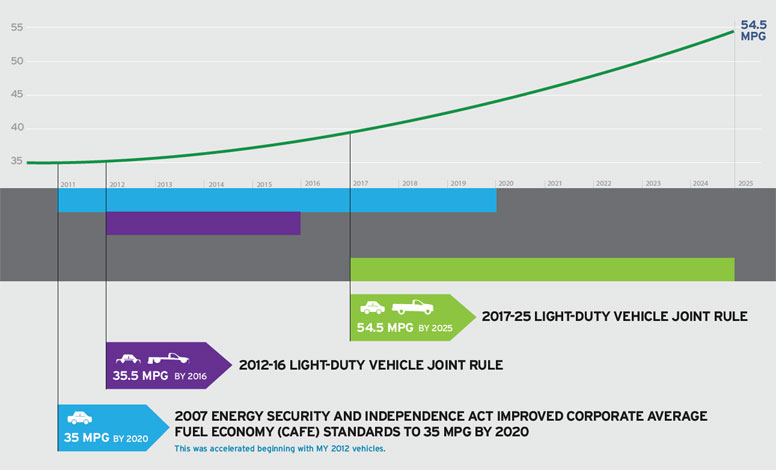A History of Fuel Efficiency in the United States
To meet the demands of the transportation sector, the United States imports more than $1 billion worth of oil per day. The Oak Ridge National Laboratory estimates that U.S. oil dependence has cost our economy more than $5 trillion since the 1970s. Closer to home, the average household spent a record $4,155 on gas in 2011.
Over the past four decades, federal policymakers have acted several times to increase fuel efficiency standards for cars and light trucks, culminating in a standard of 54.5 miles per gallon in 2025. This latest joint rule will reduce U.S. dependence on foreign oil, save consumers money at the pump, and provide incentives for production of advanced technologies in the transportation sector.
A History of Fuel Efficiency in the United States












